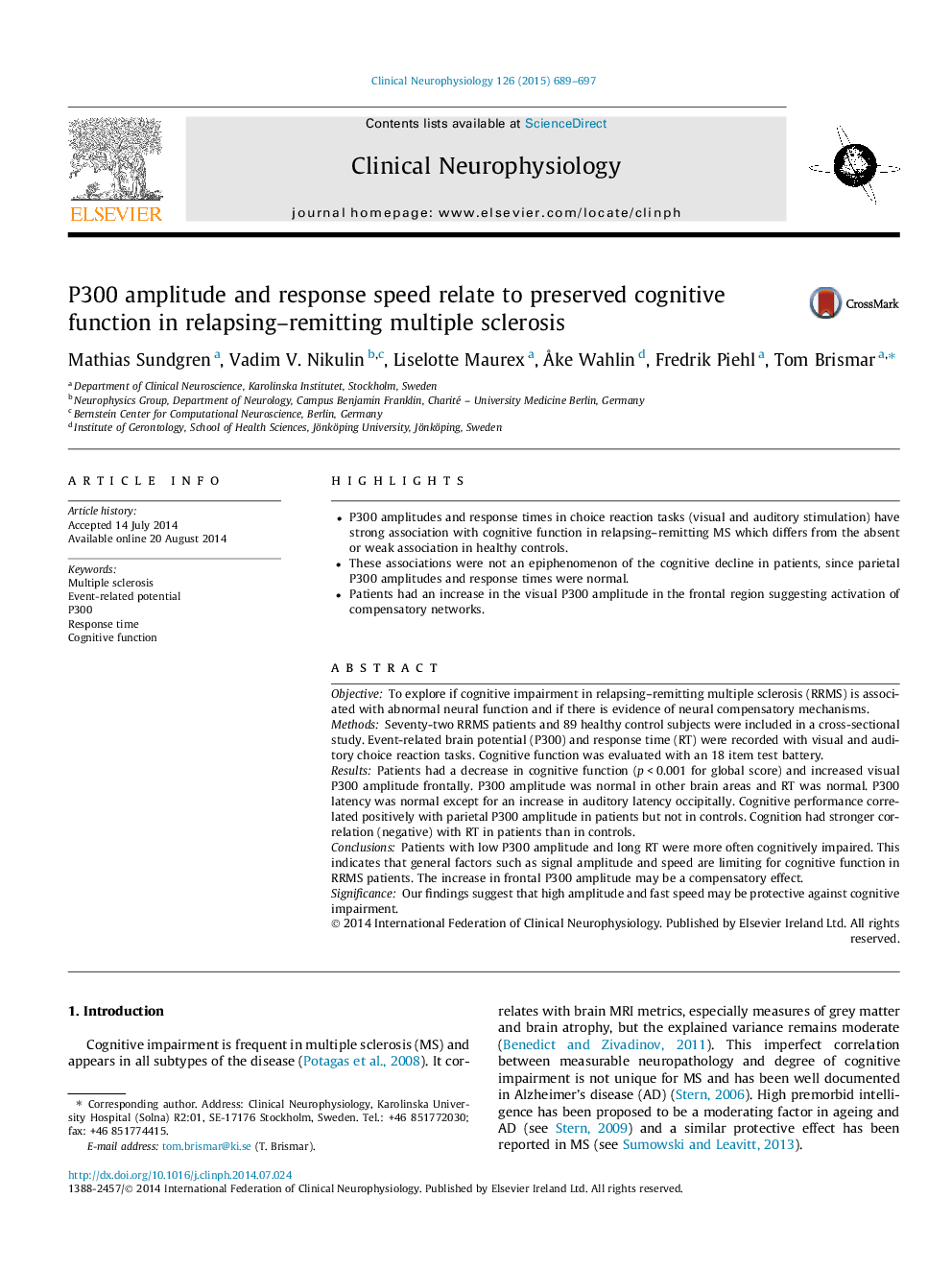| Article ID | Journal | Published Year | Pages | File Type |
|---|---|---|---|---|
| 3042996 | Clinical Neurophysiology | 2015 | 9 Pages |
•P300 amplitudes and response times in choice reaction tasks (visual and auditory stimulation) have strong association with cognitive function in relapsing–remitting MS which differs from the absent or weak association in healthy controls.•These associations were not an epiphenomenon of the cognitive decline in patients, since parietal P300 amplitudes and response times were normal.•Patients had an increase in the visual P300 amplitude in the frontal region suggesting activation of compensatory networks.
ObjectiveTo explore if cognitive impairment in relapsing–remitting multiple sclerosis (RRMS) is associated with abnormal neural function and if there is evidence of neural compensatory mechanisms.MethodsSeventy-two RRMS patients and 89 healthy control subjects were included in a cross-sectional study. Event-related brain potential (P300) and response time (RT) were recorded with visual and auditory choice reaction tasks. Cognitive function was evaluated with an 18 item test battery.ResultsPatients had a decrease in cognitive function (p < 0.001 for global score) and increased visual P300 amplitude frontally. P300 amplitude was normal in other brain areas and RT was normal. P300 latency was normal except for an increase in auditory latency occipitally. Cognitive performance correlated positively with parietal P300 amplitude in patients but not in controls. Cognition had stronger correlation (negative) with RT in patients than in controls.ConclusionsPatients with low P300 amplitude and long RT were more often cognitively impaired. This indicates that general factors such as signal amplitude and speed are limiting for cognitive function in RRMS patients. The increase in frontal P300 amplitude may be a compensatory effect.SignificanceOur findings suggest that high amplitude and fast speed may be protective against cognitive impairment.
